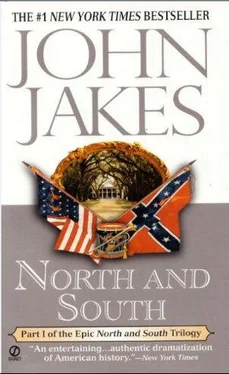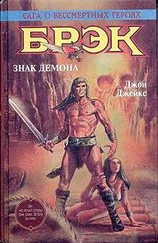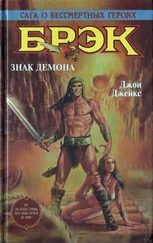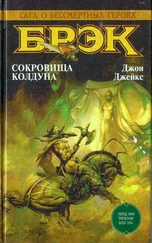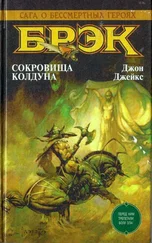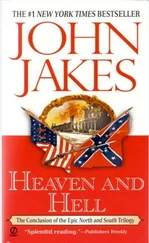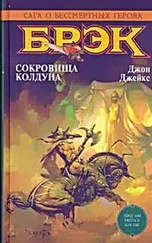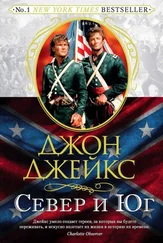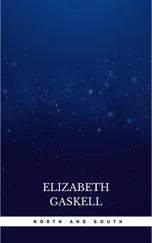Джон Джейкс - North and South
Здесь есть возможность читать онлайн «Джон Джейкс - North and South» весь текст электронной книги совершенно бесплатно (целиком полную версию без сокращений). В некоторых случаях можно слушать аудио, скачать через торрент в формате fb2 и присутствует краткое содержание. Жанр: Исторические приключения, на английском языке. Описание произведения, (предисловие) а так же отзывы посетителей доступны на портале библиотеки ЛибКат.
- Название:North and South
- Автор:
- Жанр:
- Год:неизвестен
- ISBN:нет данных
- Рейтинг книги:5 / 5. Голосов: 1
-
Избранное:Добавить в избранное
- Отзывы:
-
Ваша оценка:
- 100
- 1
- 2
- 3
- 4
- 5
North and South: краткое содержание, описание и аннотация
Предлагаем к чтению аннотацию, описание, краткое содержание или предисловие (зависит от того, что написал сам автор книги «North and South»). Если вы не нашли необходимую информацию о книге — напишите в комментариях, мы постараемся отыскать её.
North and South — читать онлайн бесплатно полную книгу (весь текст) целиком
Ниже представлен текст книги, разбитый по страницам. Система сохранения места последней прочитанной страницы, позволяет с удобством читать онлайн бесплатно книгу «North and South», без необходимости каждый раз заново искать на чём Вы остановились. Поставьте закладку, и сможете в любой момент перейти на страницу, на которой закончили чтение.
Интервал:
Закладка:
"What kind of picture?"
"Southerners are people who eat pork and collards, fight with knives, and abuse their niggers."
In spite of the way the description offended him, Orry managed to see the attempt at humor in it. "Each of those things is true about some Southerners, but it's by no means true of all. That's where misunderstandings arise, I reckon." He pondered a moment. "I have a picture of a Yankee, too." George grinned. "I thought you might. What is it?" "A Yankee's always ready to invent some new thingamajig or to outwit his neighbor in court. He's a pert sort who wants to sell you jackknives or tinware, but what he likes best is skinning you."
The other burst out laughing. "I've met a couple of Yankees like that."
"My father says Yankees are trying to run the country now."
George couldn't let that pass. "The way Virginia ran it for so many years?"
Orry gripped the varnished rail. "Look here —"
"No, look there." George decided that if they were to be friends the subject should be changed posthaste. He pointed to the stern, where the two young female passengers were giggling under their parasols. The older woman with them had fallen asleep on a bench.
George had made love to two girls back home, thus felt worldly. "Shall we go talk to 'em?"
Orry turned pink and shook his head. "You go if you want. I'm not much for gallanting the belles."
"Don't like to?"
A sheepish admission: "Don't know how."
"Well, you'd better learn or you'll miss half the fun in life." George relaxed against the rail. "Guess I won't talk to them either. I couldn't conduct much of a romance between here and West Point."
He fell silent, giving in at last to the anxiety that had been growing in him ever since he left home. His family would be staying on in the city, his father to transact some business, the others to enjoy the restaurants, museums, and theaters — while he traveled toward an uncertain future. A lonely one, too. Even if he survived the rigorous disciplines of the Academy, it would be two years before he saw Lehigh Station again. Cadets were granted just one leave, between their second and third years.
Of course he had to overcome a lot of obstacles before he became eligible for that little holiday. The academic work was reportedly hard, the deviling of plebes by upperclassmen harder still. The institution was frequently criticized for permitting hazing. The criticism usually came from Democrats who hated the whole concept of the place, as Old Hickory had.
As the steamer moved against the current, the palisades rose on either hand, green with summer leaves. There was no sign of human habitation on the bluffs. The vessel was carrying them into a wilderness. For that reason George welcomed the company of someone else fated to suffer the same uncertainties and, unless he guessed wrong, the same fears of what lay ahead.
2
The steamer proceeded north into the Hudson Highlands. About one in the afternoon it rounded the point that gave the institution its more common name. Orry strained for a glimpse of the cadet monument to the great engineer, Kosciusko, on the bluff above, but foliage hid it.
As the boat maneuvered into the North Dock, the two young men had a breathtaking view of the Hudson gorge stretching north. Ancient glaciers had carved terraced mountainsides and created the peaks with which Orry had familiarized himself through reading. He pointed them out. Mount Taurus behind them on the east shore, Crow-Nest on the west, and, farther upriver, the Shawangunk range.
"Back there where we passed Constitution Island the Americans strung a chain and boom to hamper navigation during the Revolution. Fort Clinton stood up there on the point. It was named for the British general. The ruins of Fort Putnam are over that way."
"Interested in history, are you?" George asked pointedly.
"Yes. Some of the Mains fought in the Revolution. One rode with Marion, the Swamp Fox."
"Well, I suppose some Hazards fought, too. In Pennsylvania we don't keep very close track of those things." Testiness brought on by the heat and by their isolation had crept into George's voice. He recognized that and tried to joke. "But now I understand why you haven't time for girls. You're always reading."
Orry reddened. George held up his hand. "Don't get me wrong. What you said is interesting. But are you always so serious?"
"What's wrong with that? You'd better be serious too, if you want to last through your first summer encampment."
George sobered. "Guess you're right."
The young female passengers waved good-bye as George and Orry left the steamer. The heat was intense now; George doffed his coat.
Two soldiers in uniform waited on the dock. One, rather oafish, leaned against a rickety one-horse cart. He wore a roundabout with brass buttons, trousers, and gloves — all white but not clean. On his head sat a flat round cap decorated with some kind of brass ornament. A big cutlass hung from a heavy belt.
Orry and George were the only arrivals. The crewmen hurled their luggage onto the dock without concern for the contents. While the newcomers gazed about them, the gangway was quickly drawn up. Bells rang, paddles churned, a whistle blast signaled departure.
The smaller of the two soldiers, clad in a somewhat cleaner uniform, clutched the hilt of his cutlass and strode forward. He too wore one of those round caps. He had a wrinkled face and addressed them with a distinct Irish brogue.
"Corporal Owens, United States Army. Provost of the post."
"We are new plebes —" George began.
"No, sir!"
"What's that?"
"You are a thing, sir. To be a plebe you must survive the entrance examinations. Until then both of you are lower than plebes. You are things . Remember that and comport yourselves accordingly."
That didn't set well with George. "Everything ranked and pigeonholed, is that it?"
With a sniff, Owens said, "Precisely, sir. The Academy puts great faith in rankings. Even the branches of the Army are ranked. The engineers are the elite. The acme. That is why cadets with the highest class standing become engineers. The lowest become dragoons. Remember that and comport yourselves accordingly."
What a damn lout, Orry thought. He didn't like Owens. As it turned out, few cadets did.
Owens indicated the cart. "Place your luggage in there, take that path to the top, and report to the adjutant's office." George asked where it was, but Owens ignored him.
The two newcomers trudged up a winding path to the Plain, a flat, treeless field that looked depressingly dusty and hot. Orry was feeling homesick. He tried to overcome that by recalling why he was here. The Academy gave him his best chance to get what he had wanted ever since he was small: a career as a soldier.
If George felt forlorn, he hid it well. While Orry studied the various stone buildings on the far edge of the Plain, George concentrated on a smaller frame structure immediately to their left; more specifically, on several visitors chatting and observing the Plain from the building's shaded veranda.
"Girls," George remarked unnecessarily. "That must be the hotel. Wonder if I can buy cigars there."
"Cadets don't smoke. It's a rule."
George shrugged. "I'll get around it."
Orry found the Academy's physical setting impressive, but the buildings themselves had a spartan look; that was the Army way, of course. It certainly gave the lie to critics who said the place pampered those who enrolled. And West Point could hardly be a citadel of indolence if ninety to a hundred young men arrived each June but only forty to fifty of them graduated four years later. Orry and his new friend had a long way to go before they left the place as full-fledged members of the class of 1846.
Читать дальшеИнтервал:
Закладка:
Похожие книги на «North and South»
Представляем Вашему вниманию похожие книги на «North and South» списком для выбора. Мы отобрали схожую по названию и смыслу литературу в надежде предоставить читателям больше вариантов отыскать новые, интересные, ещё непрочитанные произведения.
Обсуждение, отзывы о книге «North and South» и просто собственные мнения читателей. Оставьте ваши комментарии, напишите, что Вы думаете о произведении, его смысле или главных героях. Укажите что конкретно понравилось, а что нет, и почему Вы так считаете.
